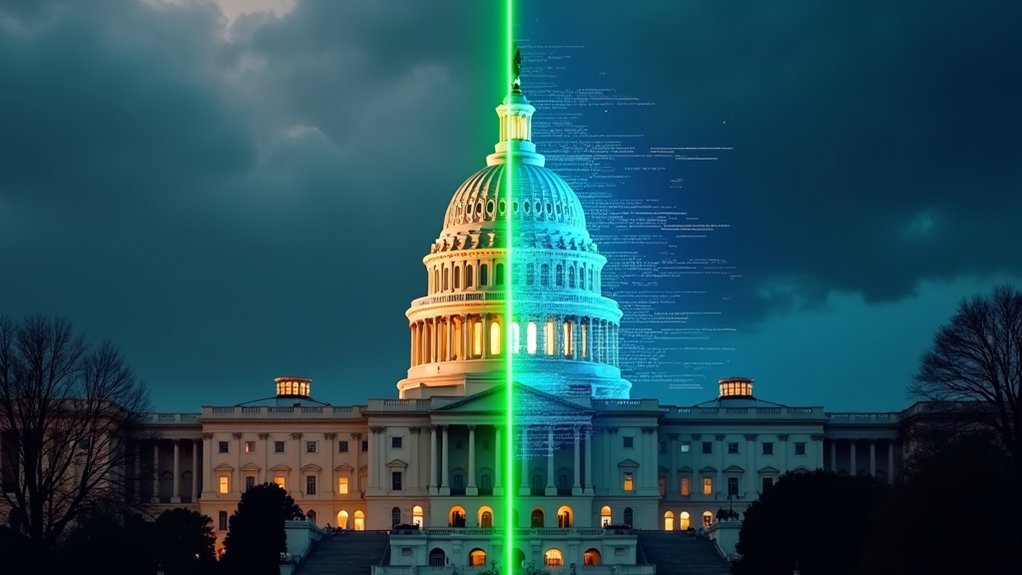After years of restrictive oversight, the Federal Deposit Insurance Corporation (FDIC) has finally thrown in the towel on its crypto approval requirements. The agency announced on March 28, 2025, that banks can now plunge into crypto activities without begging for permission first. About time.
This policy reversal rescinds the 2022 requirement that forced FDIC-supervised institutions to get prior approval for anything crypto-related. The new guidance, FIL-7-2025, replaces the old FIL-16-2022, eliminating the notification hurdle that kept many banks on the digital assets sidelines. Bureaucracy at its finest, now slightly less bureaucratic.
The FDIC finally admitted their previous approach had flaws. No kidding. The shift comes as part of the Trump administration’s broader pro-crypto stance, responding to industry pressure and addressing criticisms about what many called “Operation Chokepoint 2.0” – the perceived strangling of crypto through regulatory channels.
Banks still need to manage risks appropriately. Market, liquidity, operational, and cybersecurity concerns haven’t magically disappeared. Consumer protection and anti-money laundering obligations remain firmly in place. This regulatory change allows banks to independently pursue legally permissible activities without unnecessary delays. The FDIC expects banks to engage with supervisory teams. Safety matters, after all.
This move aligns with the Office of the Comptroller of the Currency’s recent updates and follows the Senate Banking Committee’s passage of the FIRM Act. Acting Chairman Travis Hill emphasized this represents a new approach to banking and crypto regulation. It’s a clear signal that federal attitudes toward digital assets are evolving. Maybe they finally read a blockchain book.
For the banking industry, doors are swinging open. Traditional banks can now compete with fintech and crypto companies without regulatory roadblocks. This change comes at an interesting time when different cryptocurrencies are experiencing bull and bear markets simultaneously, creating varied opportunities for institutions. Blockchain integration could accelerate. Capital might actually flow into crypto from established institutions. Revolutionary.
The FDIC plans additional guidance on specific crypto activities and will collaborate with other agencies to update interagency statements. This is just the beginning of what could be a significant regulatory evolution. Banks entering the crypto space? Strange days indeed.





